Many of us consider it a waste product but, in fact, is urine a good fertiliser? Scarlett Penn of WWOOF UK sets out why we should pause for thought before we flush.
Many of us consider our urine to be a waste product, which we flush out of our lives with purified drinking water. Even with a low-flush toilet the average person may use about 40L of treated water a day to whisk away their wee. The eco and cash cost of sanitising water for drinking is huge, so to recklessly contaminate and flush it is, in both senses, taking the piss.
But in fact, just like when we discard our manure into the sewage system, we’re flushing away one valuable resource with another. And what’s even less widely known is that a majority of beneficial land nutrients leave the body with urine, not faeces.

credit: Michigan Tech
Urine is 95% water but it’s what’s in that other 5% that’s important. 2.5% is urea, a nitrogen-rich organic compound formed from the breakdown of protein in the human body. The remaining 2.5% is minerals such as potassium and phosphorous and other dissolved ions, salts, hormones, other compounds and metabolites.
So, we’re saying urine is a rich source of nitrogen (N), plus it contains phosphorus (P) and potassium (K). If you have anything to do with farming or growing you’ll be familiar with these initials as the triplet of macro-nutrients essential for plants to grow well. You’ll see sacks of artificial fertilisers with a dizzying array of numbers to signify their ratios and concentrations of N:P:K (20-5-5 or 10-10-10 for example).
The NPK ratio of human urine varies with diet and each person has a unique profile within that but roughly speaking, an average westerner will produce urine with the proportions at 11:2:4. This means:
-
your pee is a high quality fertiliser, rich in nitrogen, which can be applied directly to your soil
-
it’s local, readily available and plentiful – one person’s urine is enough to benefit a tenth of an acre plot for one whole season
-
it’s fast acting because it’s in a ready-mixed form perfect for your plants to have a hearty drink, absorb and use straight away
-
it’s safe and sterile – most urine is urine is pathogen free unless you have a serious infection. If you have doubts, consider the planetary risk of the alternative because…
-
to produce nitrogen artificially involves the industrial fossil-fuel and energy hungry Haber-Bosch process
-
With an expanding population producing more of this rich source of nitrogen, if our wee went in our waterways without being treated at a sewage plant, it would contribute to eutrophication (algal blooms) in which will in turn kill animals and plants due to lack of oxygen.
-
and it’s FREE
So what’s holding you back from doing your pee-cycling? Let’s be clear, any ewwwwww! or gross-out factor is cultural programming. We’re perfectly happy to use animal poo (rebranded as garden manure), why not human wee? It’s been used for thousands of years but fertiliser manufacturers don’t want to you to know that. They also don’t want you to know many fertilisers are made from dried animal pee.
But wait, pull up that pelvic floor! Before you rush out to tinkle on the tomatoes here are some important dos and don’ts.
Dilution is the solution
Your pee pH is likely to be on the mildly acidic side, perhaps about 6. With our Western diet, it’s also likely to contain a lot of salt. These things can scald and harm microorganisms and delicate root systems, so you need to dilute your salute with water. Advice varies between a 1:5 and 1:15 dilution, but generally use a gentler mix for younger or more sensitive plants.You’ll need to do a degree of experimentation to see what works for your own particular circumstances but some general rules apply. Add your liquid gold to the soil, not to the leaves (a foliar feed, in growers’ terms) as it can burn them. You will see the leaves will go a really dark, rich green after a good soil application. Don’t overdo it as it’s deceptively potent stuff. If you eat a lot of salty foods you might want to thin further, especially if the land is parched or climate arid. If you don’t, sometimes salt can accumulate in white crystals on the garden which is harmful for the plants you’re trying to nurture.

pee rainbow – diet, drugs and illness make a difference. credit: Heather West
Are you on drugs?
Think twice before taking a leak on your leeks if you’re on recreational drugs or medication; pharmaceuticals or by products can go through you and into the soil. And if you have any funky goings-on downstairs don’t put your pee to veg garden use. If you really want to avoid flushing, try going in a hedgerow to fertilise your fuel crop, or perhaps on the compost heap where the very act of peeing will accelerate decomposition and the heat cycle eliminate bacteria.
Don’t pee on the peas please
Leguminous (nitrogen fixing) plants such as beans and peas have access to enough nitrogen so while it won’t harm them, you’ll get better effects elsewhere. You might also want to consider holding back on plants where lots of green leaf may come at the expense of the crop e.g. carrots. Urine is so rich in nitrogen it’s great for plants where you’re trying to encourage green leaves and also seeds, such as cereal crops. However it’s relatively low in potassium, which is also very easily fixed for free. Simply add wood ash (N:P:K ratio of 0:1:3, plus contains lots of calcium) stir, et voilà , the perfect fertiliser for plants which are set to produce more in the way of flowers, fruits and roots.
The angle of the dangle
You can collect your golden wonder by using urine separating toilets, by going in a bucket, or – if you’re going to store it – using a funnel or natural male attributes to insert contents directly into a screw cap container. It can be stored as long as there’s an air tight seal but if you can smell stale urine your precious nitrogen is leaving as ammonia, a breakdown process which starts after 24 hours. At this point it’s stronger, so some say it’s best put straight on to the compost heap rather than onto your soil
Can I have a P please, Bob? (only people over 35 will get this)
It may be considered polite to inform or get permission from the people you’re serving up your piddle-powered produce to. But don’t be shy, get the family involved and induct your kids into this healthy habit an early age.
The positive results have been documented, for example a study with beetroot by the University of Kuopio, Finland here. A 2007 study of cabbages fed with human urine grew much better than those fed artificial fertilisers and in addition, suffered less insect predation. Trials with chard in Africa showed the same effect.
With all these benefits, why would you not consider closing the nutrient cycle and feeling more in touch with your earth, and getting more out of it? Don’t let your wee be a waste stream – start tapping into this golden opportunity right now!
 About the author
About the author
Scarlett Penn used to live at Redfield Community, and is the Chief Executive of WWOOF UK. When she’s not travelling around in her big yellow van, she lives in Shropshire on a smallholding with her partner. She also looks after the Plants section of our website.









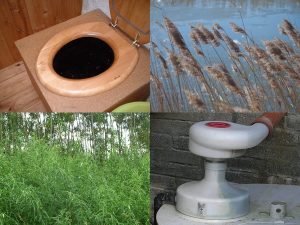

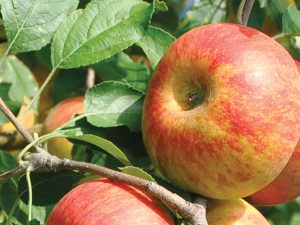




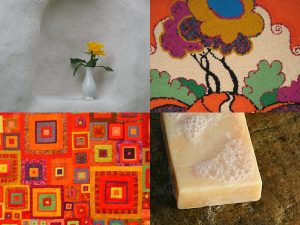


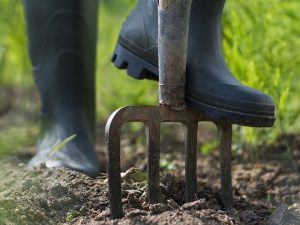
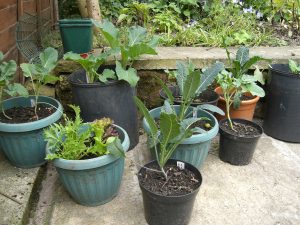
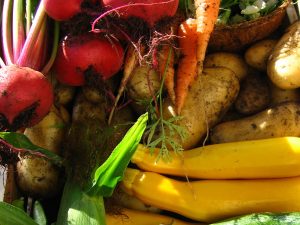



17 Comments
Peeponics is considered by many Aquaponics enthusiasts as the perfect way to start your Aquaponics setup. And, like the advice given above, you should also consider all the negative aspects, but not to the detriment of the positive ones! And don’t forget people, Aquaponics uses up to 75% LESS water than traditional growing techniques (I am discounting Growboxx here) and you get the satisfaction of eating your own fertilizer!! (That’s the fish, not the faeces!!)
Great article – the accepted wisdom is to dilute it 1 part urine to 10 parts water for use as a fertiliser and a great compost activator. If your urine isn’t sterile at point of delivery, you need to see a doctor. I also read somewhere that the amount of phosphorus we pee is about the right amount to feed the plants we eat. Since there is talk about a coming shortage of phosphorus, something to keep in mind.
Some years back I visited the centre for alternative technology and they had the gents urinals going directly outside onto straw bales which soaked up the urine and eventually rotted into a lovely rich compost.
‘golden opportunity…’ Genius.
If we have guests round on a summer evening, I often get them to pee in the garden, rather than in the loo (or at least the guys) – it’s a waste of fertiliser to flush it away. They get me to pee in their gardens too (or on their compost heaps). This happens after dark though – the neighbours might not be enlightened enough to understand.
And do you have competitions as to who can go highest / furthest, Dave? 🙂
No John, the height from which it’s delivered doesn’t affect the nitrogen content.
We accumulate our pee into a 5 gallon bucket. when half full, i add water to the top and put a lid on. Like this we let it ferment for a minimum of 4 weeks. This kills any possible pathogens and increases the ammonia contents. This increase makes it even more potent as a fertilizer. Still don’t forget to dilute 5:1 with water. Great article! Check out our free manual and building plans for cheap, easy, effective and durable batch composting toilets https://drive.google.com/open?id=1rqr1AbMgsU3vO7bFVobTrxZwljqbyc0RXfZflFVpb20
I’m not a chemist but I thought the ammonia was produced from the nitrogen so more ammonia = less nitrogen?
I did some quick research. Yes the nitrogen gets converted into carbonate of ammonia, bringing the nutrient ratio to 1:1:1 and the Ph goes alkaline. The practice is mainly done to reduce the risk of burning plants and to prevent acidifying the soil. Also to kill off any pathogens. As we already know, healthy pee is sterile so if it’s your own family’s output you normally wouldn’t have to worry about that. Having scanned through http://www.jstor.org/stable/pdf/3220677.pdf?refreqid=excelsior%3Ab449180cf89ca83ff778c7a79bbe6fd9 I doubt that fermenting urine would be benificial in my case. I don’t mind the high nitrogen as long as you dilute it with enough water, right?
Thanks so much for your researched reply, Bjorn, much appreciated. I’ve always followed L D Hills advice to dilute 1:10 and utilise as a compost activator. If I had an excess, I’d use it on my comfrey plants next or around leafy brassicas, both of which are nitrogen greedy.
yipPEE sharing information is a wonderful thing! So now I’ve learned from you peeponics is something to research further and using urine on comfrey is another option I hadn’t considered. Thanks 🙂
Long ago I was told Male Pee contains a Growth Promoter N Acetyl Indole ?? Can anyone confirm or get right Chemical
I’ve known this for yrs an I’m only 31
Can I use diluted urine on my thai pepper plants and lemon seedlings?
Many women are on birth control but no other drugs. Would this hormonal drug cause issues?
Bjorn and John , I try to use my urine ASAP in order to KEEP the acidic property, because our soil is based on Limestone bedrock (although we have many large granite rocks in the soil the size of a fist or a head left behind by glaciers), it helps to release many of the minerals bound up and less available to plants, it’s like a double boost. I also found foliar feeding ( I have a few cold frames with greens and such that I could, but do not , crawl inside of , and it would be too fussy to try to avoid the tops and spray the soil only)..I will back off the urine use, in fact probably wont require it at all as the plants get bigger+ bigger roots and better feeding..and will use only water for the last 3 or 4 weeks prior to harvest. This is working wonders. Also goes around all my fruit trees and bushes, roses, lilacs and anything else. Haven’t got the warm weather veggies going yet (outside) but looking forward to similar results…and isn’t it interesting that the urine and wood ash combo, together give an NPK value that could hardly be improved upon.
Hi Scarlet,
Love this article and its good to know the approximate proportions of water to urine. However I’m not sure how much wood ash to use with the diluted urine. So could you kindly explain what the correct proportions need to be for a combination of diluted urine and wood ash please?
Many thanks.
Am proud of this,I will use my own urine as fertiliser, this is good development